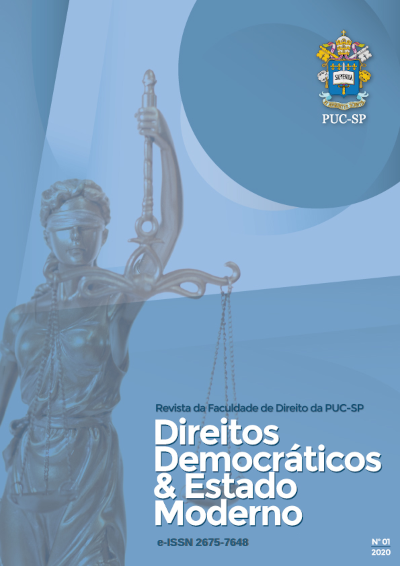O hiperciclo do direito: os desafios do ciberespaço, o jogo e as regras
DOI:
https://doi.org/10.23925/ddem.v0i1.50499Palavras-chave:
Direito, Comunicação, Jogo, Hiperciclo, CiberespaçoResumo
A presente tese propõe realizar uma leitura do Direito a partir do Jogo, do Hiperciclo e dos fluxos comunicacionais. As mudanças do Direito passam de forma decisiva pelas transformações ocorridas pelas novas tecnologias de informação. O cenário utilizado é o Ciberespaço, onde entoa um mundo de muitas vozes, fluxos de dados e informacionais. As relações humanas passaram a ser pilotadas por este novo mundo virtual, movido pelos fluxos de comunicação e informação, o homem se move digitando ludicamente conforme a arquitetura da rede. Duas apreensões são realizadas entre o Jogo e o Direito. Uma primeira pelo método analógico e a segunda a partir da ideia de dialética, que conduz uma forma de compreensão da complexidade. O jogo – um espaço entre dois – surge como um paradigma explicativo e interpretativo. Jogo e Direito são sistemas evolutivos de interações de regras mutáveis, onde reinam os paradoxos. Os processos comunicacionais animam o jogo de regras móveis no Direito. A comunicação se constitui em um paradigma do Direito, sendo o Ciberespaço um espaço de fluxos de comunicação interativa. Neste ambiente comum a todos, as liberdades são reguladas de forma fragmentada. Ao regular o Ciberespaço, o Direito regula as comunicações existentes, enfrentando problemáticas que sempre emergem quando se regulam liberdades. As problemáticas de regulação passam pela privacidade, desinformação, big data, dentre outras. Ao regular as comunicações existentes, o Direito regula o seu próprio discurso. A comunicação como elemento primeiro que constitui a sociedade é um acontecimento que requer entendimento, em um jogo onde se pode aceitar ou rejeitar (dupla contingência). O Direito mantém as comunicações jurídicas criando e se recriando pelo hiperciclo. Os resultados, tal como no jogo, podem ser o esperado ou o impensável. Um direito vivo e dinâmico aparece em um entrelaçamento recíproco. Ao mesmo tempo, o Direito em um mundo multicêntrico surge fragmentado em um lugar hiperconectado, ocorrendo uma intertextualidade entre ordenamentos jurídicos. As ordens jurídicas se observam e promovem um intercâmbio de aprendizagem. Um Direito fragmentado e um Ciberespaço onde a comunidade mundial está conectada com uma diversidade de regulamentação faz um apelo ao comum.Downloads
Publicado
2020-11-06
Como Citar
Araújo, M. (2020). O hiperciclo do direito: os desafios do ciberespaço, o jogo e as regras. Direitos Democráticos & Estado Moderno, (1), 211–213. https://doi.org/10.23925/ddem.v0i1.50499
Edição
Seção
Resumos de Teses
Licença

Este obra está licenciada com uma Licença Creative Commons Atribuição 4.0 Internacional.
Os autores concedem à revista todos os direitos autorais referentes aos trabalhos publicados. Os conceitos emitidos em artigos assinados são de absoluta e exclusiva responsabilidade de seus autores.
Revista DD&EM - ISSN 2675-7648
















